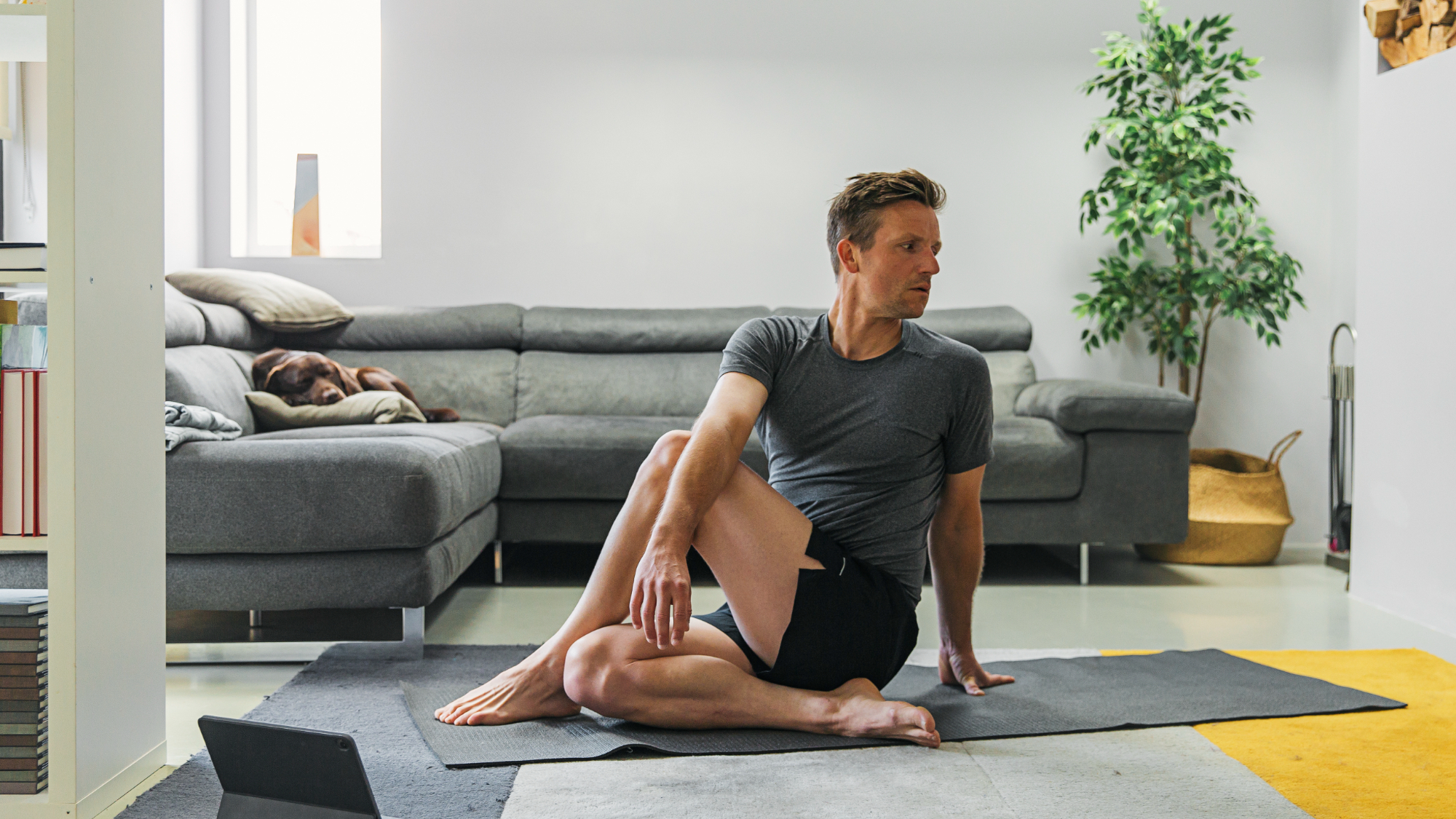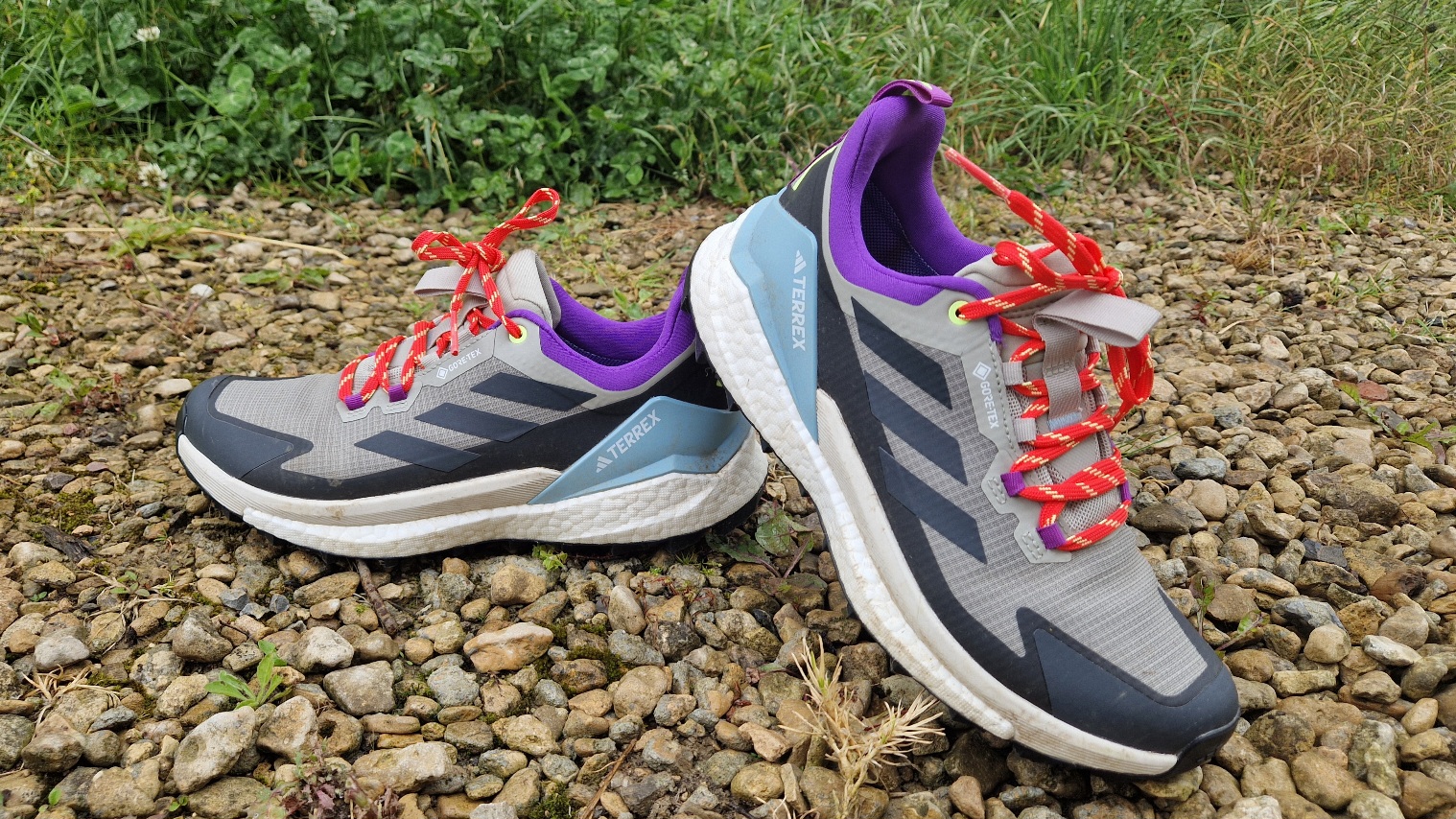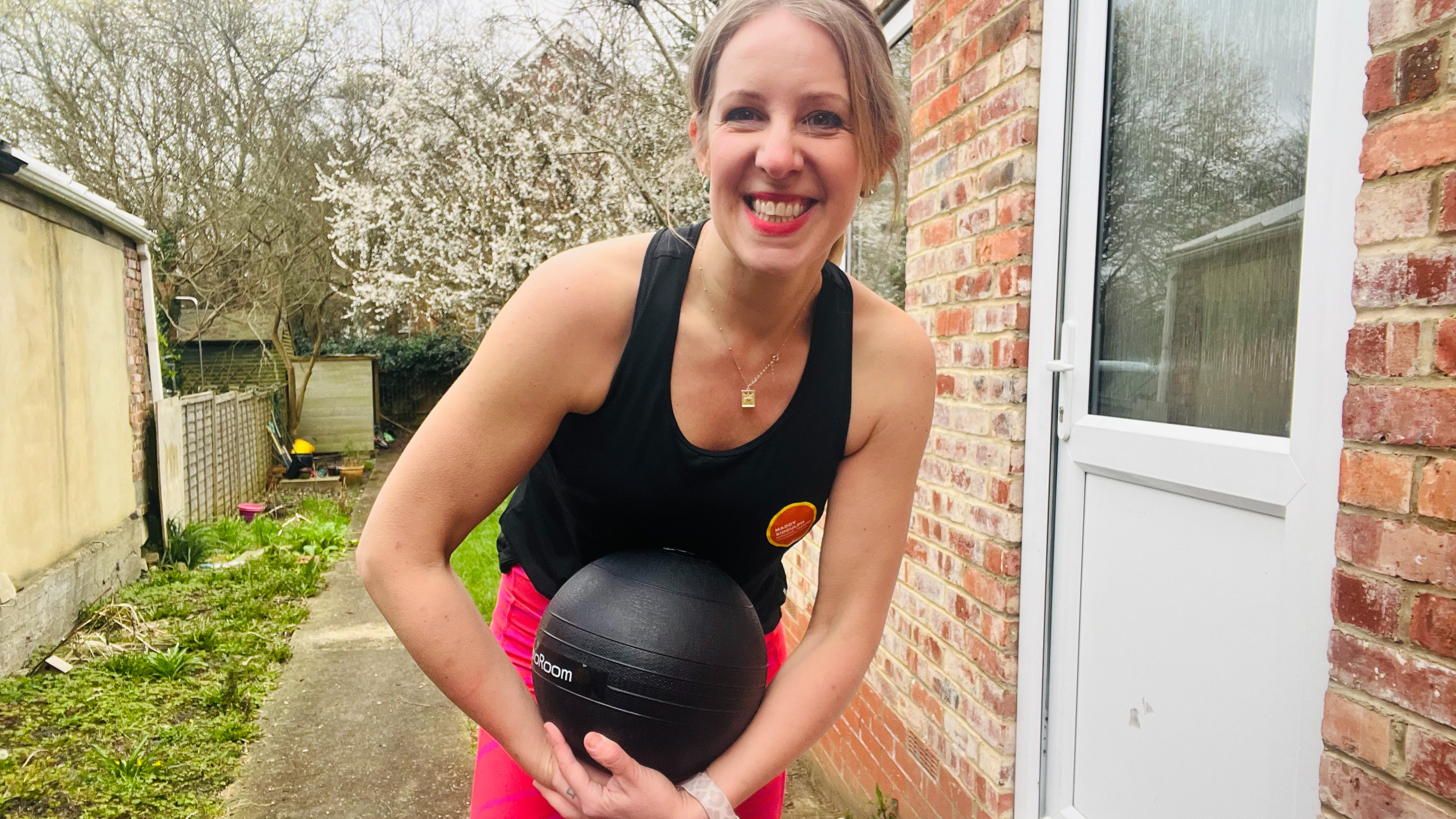Should you do Pilates or yoga to build a stronger core?
We asked a trainer whether Pilates or yoga is best for building core strength and the top poses to work your abs


When you're considering Pilates vs yoga for building a stronger core, it's important to know that both practices work your midsection, helping connect your upper and lower body.
While you can find plenty of accessories, the only equipment you really need is one of the best yoga mats to get started. But is Pilates or yoga your best option if you want to develop core strength?
Both practices use natural movement patterns to develop functional strength that'll help you during everyday activities, boost your balance, increase your stability, and promote blood flow.
We've looked at the latest research and spoken to a certified Pilates instructor to help you compare Pilates vs yoga for core strength so that you can get the most from your training.
Nadia Murdock is a Certified Pilates instructor, contributor at Garage Gym Reviews, a mindset and movement coach, and founder of Nadia Murdock Fit. She holds a degree in Psychology and a certification in Cognitive Behavioral Therapy (CBT).
Pilates vs. Yoga: what's the difference?
Pilates is a style of exercise that uses around 50 movements to gently build muscle and develop strength following an injury. The main aim is to develop your muscles, increase your endurance, and improve your flexibility, posture, and balance.
Each exercise in Pilates originates from the "five essentials" of the practice, which include breathing, cervical alignment, rib and scapular (shoulder blade) stabilization, pelvic mobility, and engaging the transverses abdominis — the deep core muscles in the abdomen.
This makes Pilates primarily a core-focused practice, which is why it’s so popular among those trying to build core strength. Yoga is a much broader category, as there are several types of yoga, including Hatha, restorative, Ashtanga, Bikram, and Vinyasa.
Get the Fit&Well Newsletter
Start your week with achievable workout ideas, health tips and wellbeing advice in your inbox.
According to The International Journal of Yoga, the practice of yoga poses (asanas) was created to encourage alignment, strength, and balance in the structure of the body and to enhance dynamic control of core stabilizing muscles. As such, yoga is also an excellent form of core strengthening exercise.
Generally, Pilates is the more active of the two practices, but as there's a lot of variation in yoga, you can find calming yin yoga sessions but then also take on a more dynamic core yoga routine to develop the muscles around your midsection.
Is Pilates best for building core strength?
If you're trying to decide between Pilates and yoga for strengthening your core, the good news is that you don't have to — both are fantastic choices that can work in tandem with any workout routine.
Each practice is different, but that adds variety to your exercise schedule and means you get to work different muscles, develop endurance with Pilates, and boost the mind-muscle connection with yoga.
You can take on a Pilates abs workout if you want to dedicate a whole session to your core, but any Pilates routine will work your midsection. Likewise, these yoga stretches for beginners are entirely equipment-free but still boost your mobility and engage your abs.
Does Pilates build more muscle than yoga?
If you're looking for the fastest way to build muscle, you're better off investing in some adjustable dumbbells and lifting weights in place of a Pilates session or yoga routine. But that doesn't mean you can't build muscle with these practices.
However, Pilates is excellent for your health and fitness in many other ways. According to the Journal of Physical Education and Sports Science, Pilates can improve your posture, increase joint mobility, boost your spinal strength, and lower your stress levels.
Although it depends on what type you practice, yoga is generally best for boosting your mobility, increasing your flexibility, and developing a sense of mindfulness.
Routines like a hip mobility yoga flow can strengthen your lower body, but the aim is to stretch the muscles rather than grow them. But it's also important to remember physical strength is only one way to look after your body.
Regular yoga practice is a great way to build mental strength, as it helps connect your body and mind, focuses your attention on the present moment, and reduces stress.
What are the best Pilates moves for core strength?
According to research published in the Muscle, Ligaments, and Tendons Journal, most Pilates moves will help you build core strength, and the key is to choose those that provide a challenge without being too difficult.
According to Certified Pilates instructor and contributor at Garage Gym Reviews, Nadia Murdock, the top Pilates moves for core strength you can blend into your regular training routine are:
- Corkscrew: This helps to stretch the hip flexors and work the entire abdominal wall, including your obliques. This is a form of resistance training that concentrates on the core muscles.
- Bird dog: This simple core exercise also helps strengthen your hips and back muscles. It improves stability, promotes posture, and increases the range of motion.
- Hundreds: One of the great things about this exercise is it not only strengthens your core but also helps to improve circulation. In addition, it boosts stability, endurance, and strength.
- Single leg circles: While strengthening the core, it also works on building muscle in the glutes while improving pelvic stability.
Every Pilates move starts by stabilizing the core muscles, including the abdominal, gluteal, and paraspinal muscles, then the movement goes through a controlled range of motion to strengthen other muscles.
The deepest core muscles, the transversus abdominis, are particularly recruited when performing Pilates movements, which require you to pull in these muscles while bracing and breathing throughout each move.
What are the best yoga moves for core strength?
Many yoga routines are arranged into flow classes, where you gradually shift between poses or asanas. This requires balance and stability, so this technique naturally works your core.
However, some yoga poses are more effective for engaging your abs and strengthening your core. A review published in The International Journal of Sport and Health Sciences describes five yoga poses as being the best for core strength:
- Ardha Phalakasana (Low plank)
- Vasisthasana (side plank)
- Purvottanasana (inclined plank)
- Sarvangasana (shoulder stand)
- Virabhadrasana (Warrior)
Another study in Complimentary Therapies in Medicine confirms that low plank is an excellent core strengthening move, adding high plank and Downward facing dog as being among the most effective for strengthening external obliques, which are the muscles on the side of your core.
So, when you're comparing Pilates vs yoga for strength, both practices are an effective way to challenge your midsection muscles, boost your balance, and improve your stability.
Which you choose depends on what type of exercise you prefer the most. Pilates is a more active practice but is less intense than a dumbbell core workout. Yoga engages your core in most poses, but it's also a mindful way to move your body without having to learn how to meditate.
Rachel is a lifelong health and fitness enthusiast with 15 years of experience, a certified personal trainer, and a fitness writer with bylines at Livestrong, Verywell, and Insider. She is passionate about clearly and accessibly communicating actionable and science-based fitness advice. Alongside her writing, Rachel also holds several certifications, including nutrition, prenatal/postpartum exercise, and pain-free performance. She lives in coastal Eastern Canada, and her hobbies include jiu-jitsu, hiking, and trips to the beach.
-
 This might be your last chance to get my favourite waterproof walking shoe, and it's 25% off
This might be your last chance to get my favourite waterproof walking shoe, and it's 25% offDeal These Adidas Gore-Tex shoes are the most watertight I've tested
By Lou Mudge
-
 I tried wall balls for 30 days and the results surprised me
I tried wall balls for 30 days and the results surprised meTry this fitness challenge to boost total body strength
By Maddy Biddulph